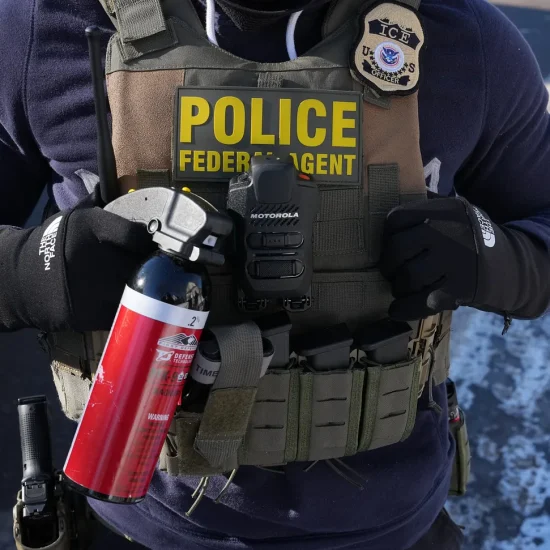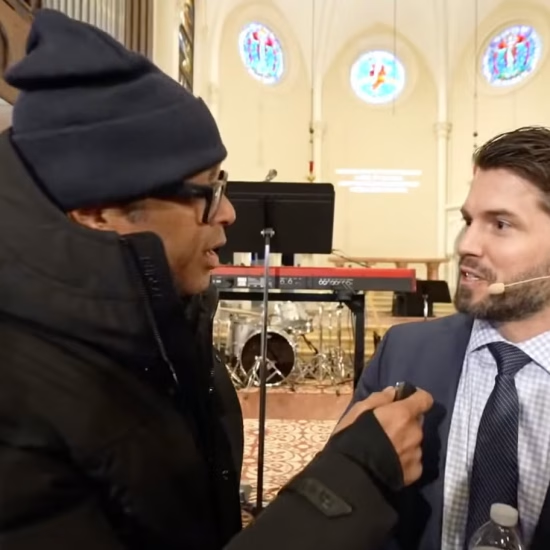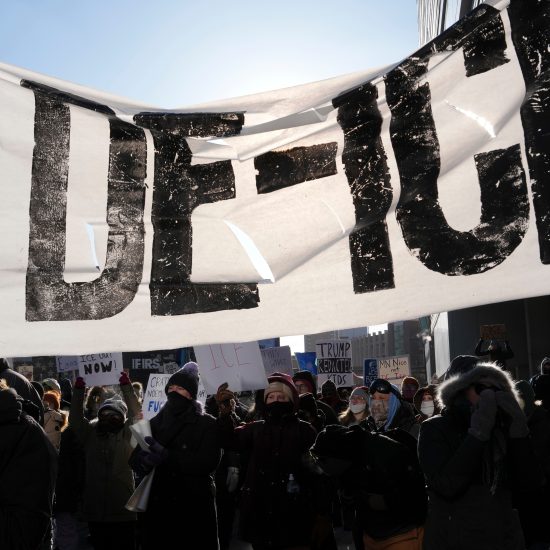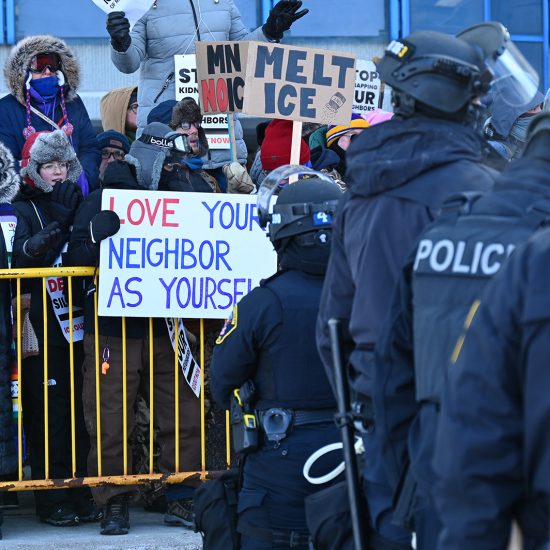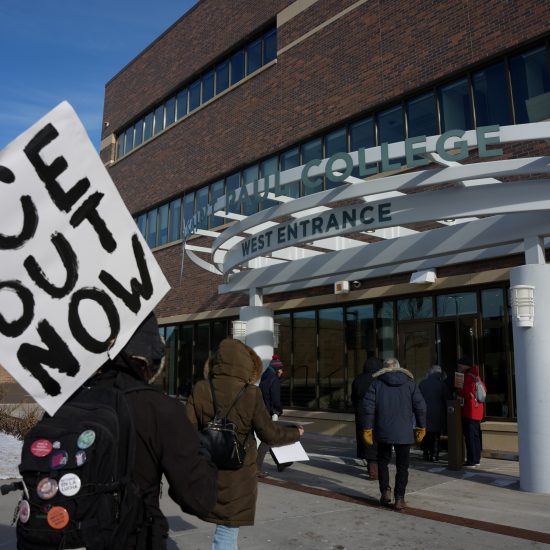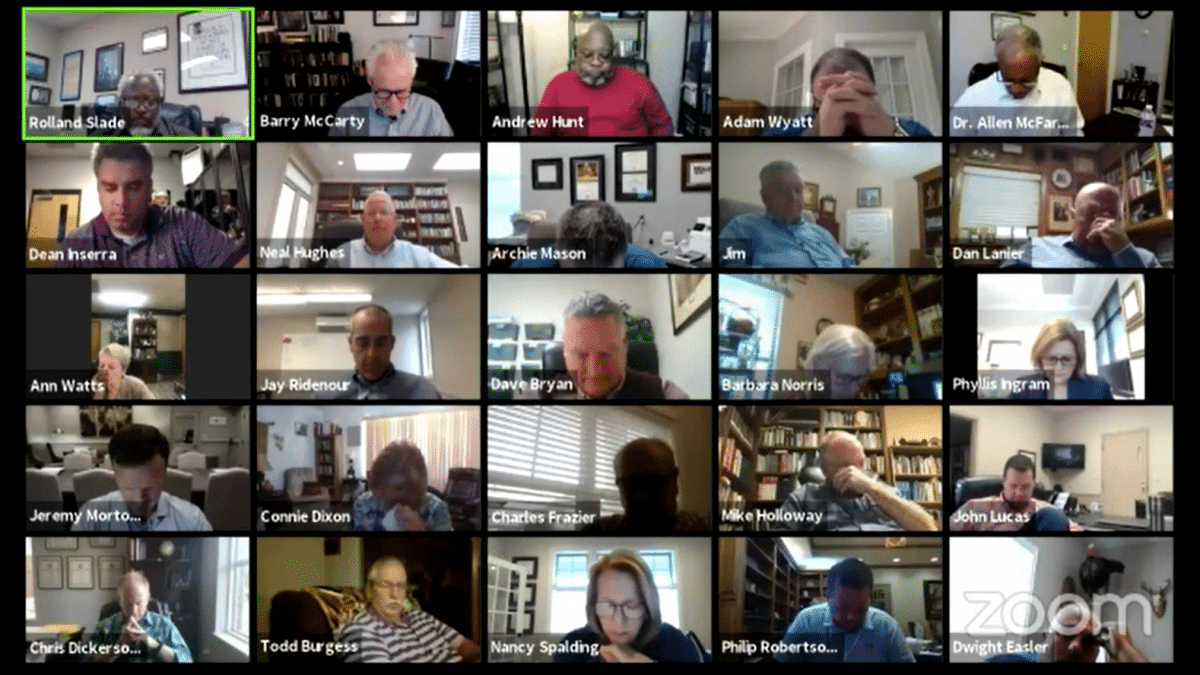
(AP) — A top committee of the Southern Baptist Convention agreed Tuesday (Oct. 5) to open up legally protected records to investigators who will look into how it handled, or mishandled, cases of sexual abuse within the nation’s largest Protestant denomination over the past two decades.
The third vote on the matter in less than three weeks by the evangelical denomination’s Executive Committee, it reversed two previous ones that would have maintained attorney-client privilege. Waiving that privilege is considered crucial to enabling a transparent reckoning into how the denomination’s leaders responded to abuse and abusers in its churches and institutions.
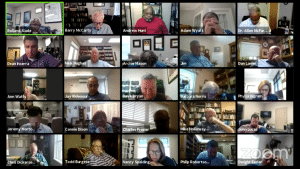
Screengrab during the Southern Baptist Convention’s Executive Committee meeting on Oct. 5, 2021.
The 44-31 vote followed unsuccessful efforts to negotiate a compromise and the resignation of several board members who had previously opposed the waiver.
Proponents said the Executive Committee really had no choice because it was directed to waive privilege by the ultimate authority in Southern Baptist government: the church representatives, or messengers, who voted at the convention’s annual meeting in Nashville in June to authorize an investigation of the committee.
Opponents said waiving privilege would be financially reckless, citing attorneys’ advice that it could prompt insurers to drop their coverage of the convention’s entities.
“What we’re doing is about creating chaos,” committee member Joe Knott of North Carolina said in opposition to the waiver.
The messengers “voted to investigate sexual abuse” but not to “void our insurance,” he said.
Another member, Mike Keahbone of Oklahoma, countered that the committee also had a “spiritual fiduciary duty.”
“We have victims who have been waiting for a long time for a tangible step towards healing,” he said.
The Executive Committee has come under scrutiny particularly since a 2019 report by the Houston Chronicle and the San Antonio Express-News documenting hundreds of cases of abuse in Southern Baptist churches, including several in which alleged perpetrators remained in ministry.
The review will be overseen by a task force and conducted by an investigative firm, Guidepost Solutions. Advocates for abuse survivors applauded the vote.
“This is one small step forward, for which I am thankful, but it’s only the beginning of a long road ahead,” tweeted Jules Woodson, an advocate for those like herself who have come forward with accounts of sexual abuse by SBC clergy. “May truth prevail.”
Pressure on the Executive Committee had built from within the denomination, with groups of pastors saying a refusal to heed the messengers on the attorney-client privilege issue could jeopardize trust among rank-and-file Baptists. They also said it could put at risk donations to the convention’s unified budget, which funds seminaries, missionaries and joint projects on the global, national and state levels. Seminary presidents and state Baptist leaders also called for the committee to follow the messengers’ directive.
Committee chairman Rolland Slade of California sought to bridge differences after the vote, saying trustees had tried to do their best “while navigating uncharted territory” and people on all sides had faced “unnecessary personal attacks” during bitter debates online and elsewhere.
“Most importantly, it’s time to know for sure where we have fallen short on the question of sexual abuse … so we can correct any errors and move into the future as a convention that’s the most safe for our most vulnerable members,” Slade said.

